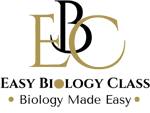Immunology is the branch of biomedical science that deals with the study of the immune system, which is responsible for protecting the body from foreign substances, such as pathogens (e.g., bacteria, viruses) and abnormal cells (e.g., cancer cells). This Essential Immunology MCQ will help you to understand the basics of immunology.
Essential Immunology MCQ
(1). The stimulation of antigen specific T cells by appropriately presented antigen alone results in _____
a. Cytotoxicity
b. Allergy
c. Cell division
d. Production of IL-3
(2). The thymus independent type I antigens are ______
a. Polysaccharide of bacterial origin
b. Small proteins of bacterial origin
c. Bacterial nucleic acids
d. Viral nucleic acids
(3). Which of the following statement is true about Th-1 cells?
a. They do not produce TNFγ
b. They do not express CD4
c. They don not binds to soluble proteins
d. They don not activate macrophages
(4). Select the false statement about T cells.
a. T cells do not produce the IL-2
b. T cells will not respond to IL-4
c. T cells will not respond to IL-2
d. T cell mediate their functions only through cell to cell contact
(5). Which among the following can inhibit inflammation?
a. RO
b. TNFα
c. Neuropeptide Y
d. Protein C
(6). The antigen presentation by endogenous pathway involves:
a. Antigen presentation to cytotoxic T cells
b. Antigen presentation to Th-1 cells
c. Antigen presentation to B cells
d. Antigen presentation on MHC Class II
You may also like: Immunology Lecture Notes
(7). Select the wrong statement from the following regarding the receptors of innate immune system:
a. They are included in the Toll family of receptors
b. They include MHC complexes
c. They recognize the molecular patterns
d. They include scavenger receptors
(8). The cytotoxic T cells recognize antigen in association with ________.
a. Class I MHC determinants
b. Class II MHC determinants
c. Class III MHC determinants
d. Class I and Class II Determinants
(9). A cytokine which can increase the body temperature directly ____.
a. IL-2
b. IL-3
c. IL-5
d. IL-6
(10). Which of the following statement is true about TNF alpha?
a. Can increase the expression of adhesion molecules
b. Decrease vascular permeability
c. Evoke Th cells
d. Induce TGF beta production
(11). Which of the following statement is true about IgM of human?
a. IgM can cross the placenta
b. IgM is produced by high affinity plasma cells
c. IgM is primarily restricted in the circulation
d. IgM can protect mucosal surface
(12). The heavy chain of Immunoglobulin molecules are:
a. Encoded by a constant region exon
b. Expressed by T cells
c. No glycosylated
d. Heavily phosphorylated
(13). Presence of ______ can be used to separate helper T cells from cytotoxic T cells.
a. Class II MHC
b. CD-2
c. CD-3
d. CD-4
You may also like: Immunology PPTs
(14). A chemokine with indirect antiviral activity:
a. TNF
b. TGF
c. INF
d. IL
(15). INFγ are primarily produced by ______
a. NK cells
b. Th-1 cells
c. Macrophages
d. Both (a) and (b)
e. Both (b) and (c)
More Immunology MCQ with Answer Key…
Answer Key
1. Ans. (b). Allergy
2. Ans. (a). Polysaccharides of bacterial origin
3. Ans. (c). They do not binds to soluble proteins
4. Ans. (d). T cell mediate their functions only through cell to cell contact
5. Ans. (d). Protein C
6. Ans. (a). Antigen presentation to cytotoxic T cells
7. Ans. (b). They include MHC complexes
8. Ans. (a). Class I MHC determinants
9. Ans. (d). IL-6
10. Ans. (a). Can increase the expression of adhesion molecules
11. Ans. (c). IgM is primarily restricted in the circulation
12. Ans. (a). Encoded by a constant region exon
13. Ans. (d). CD-4
14. Ans. (c) INF
15. Ans. (d). Both (a) and (b)

. … I try to solve and submit mcq practice set… But the mcq are not submit… Plz check this
Nice revision questions for beginners in immunology
Its very very nice notes
thank you damacaniciana
really really really really super
Thank you Sathiyakala for your support
Keep visiting Easybiologyclass
Happy learning Biology
Regards
A very good effort keep it up sir